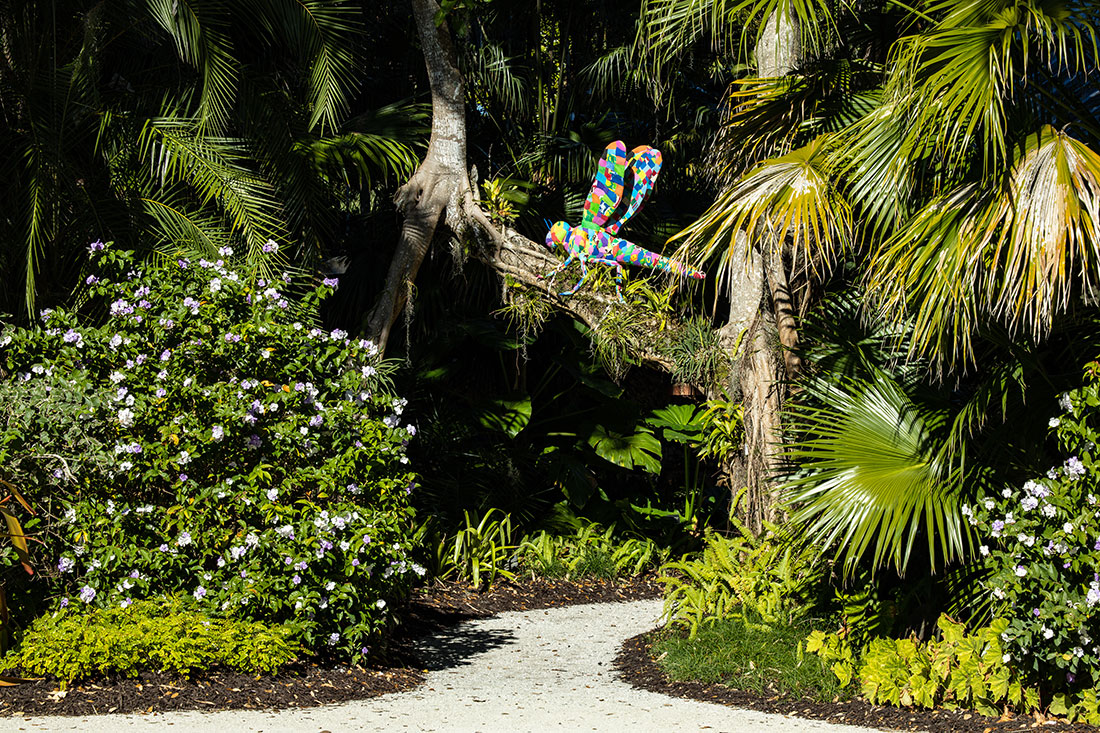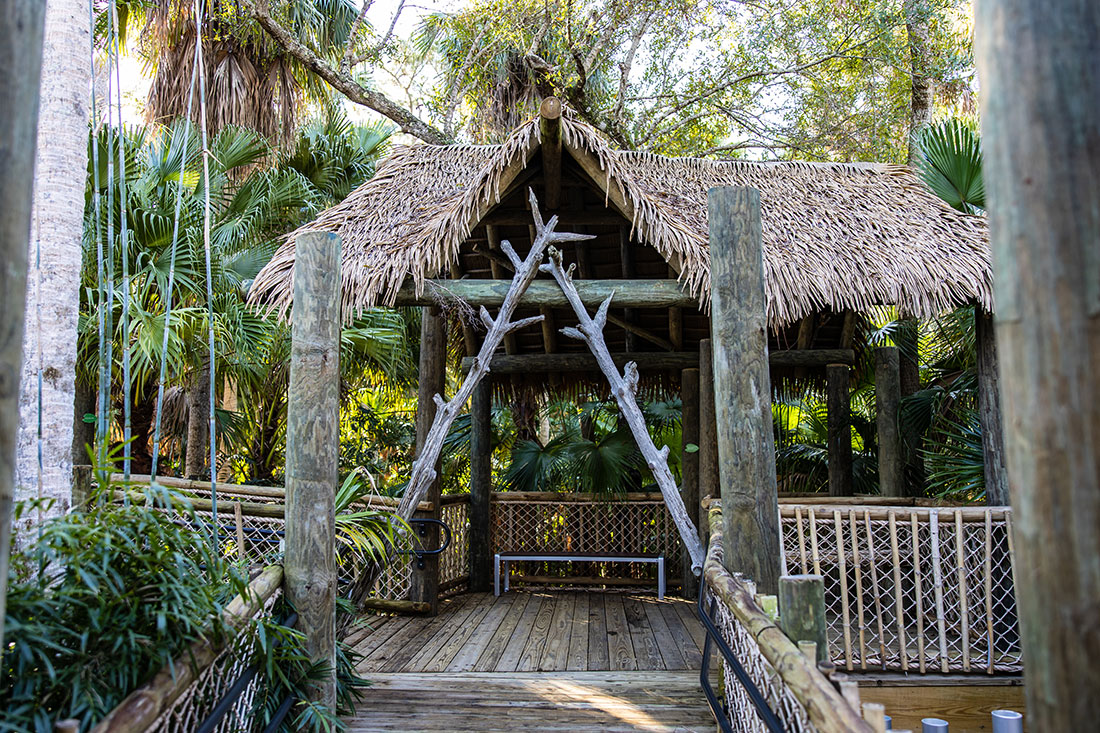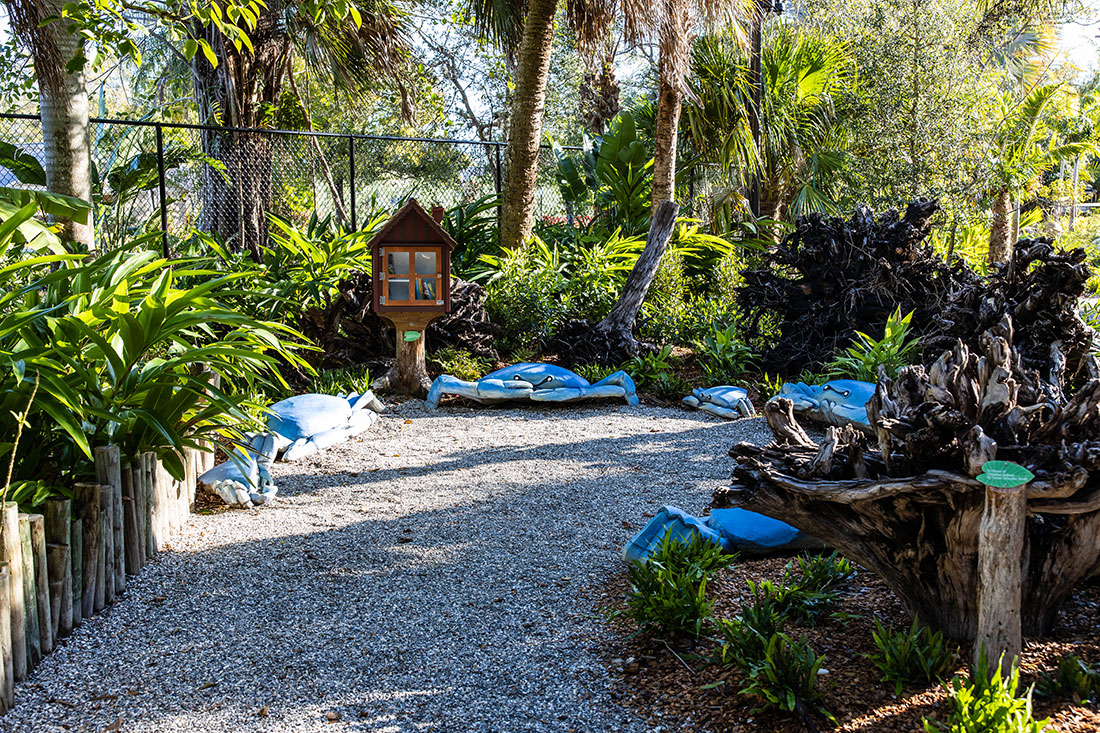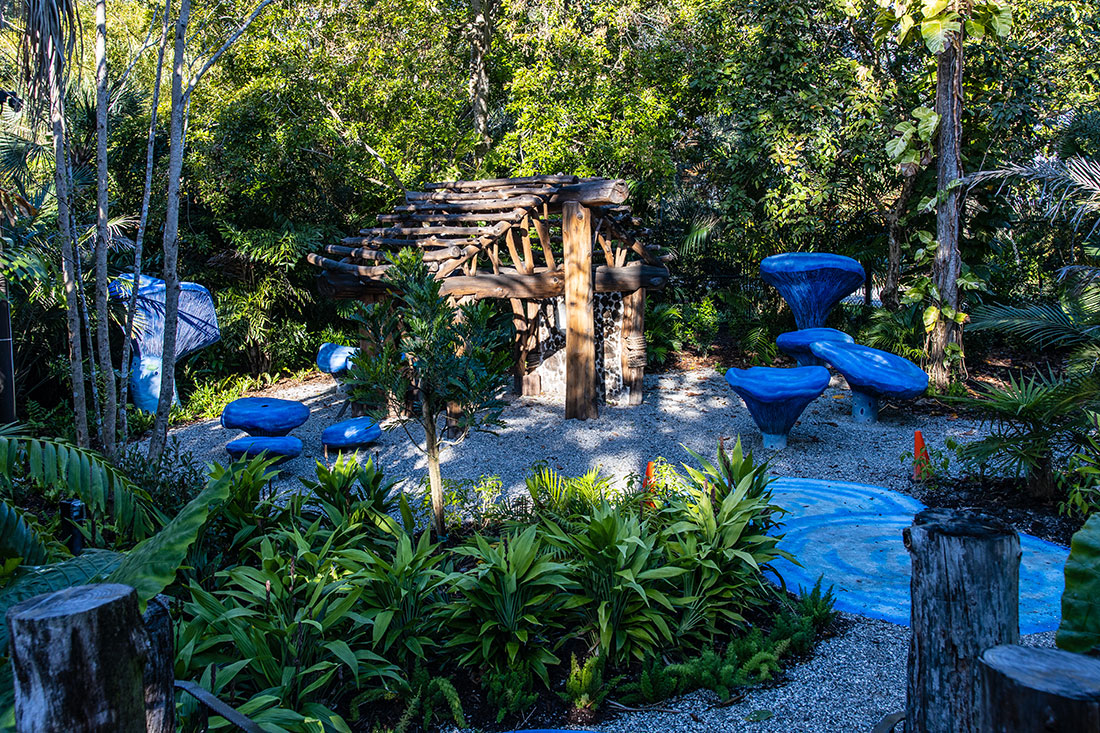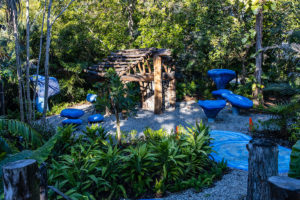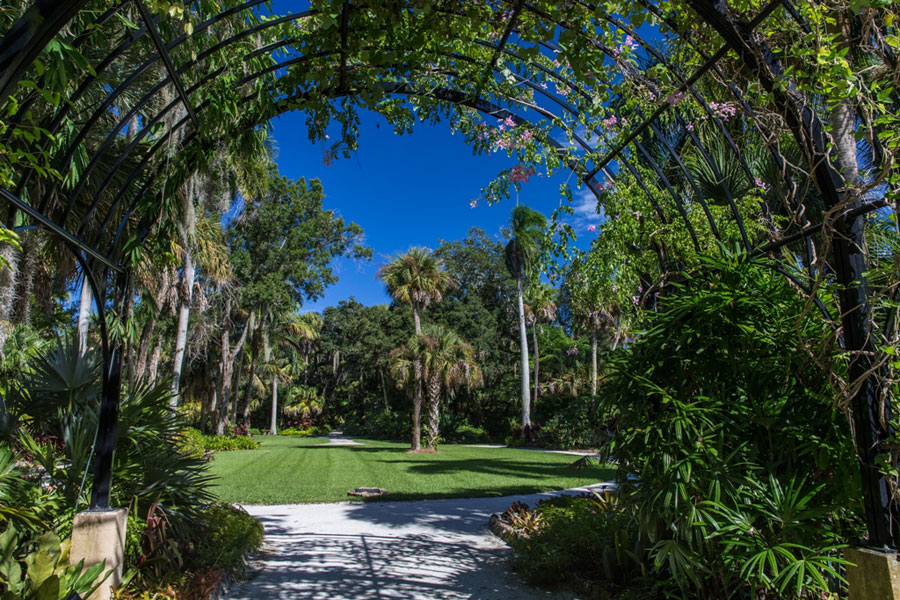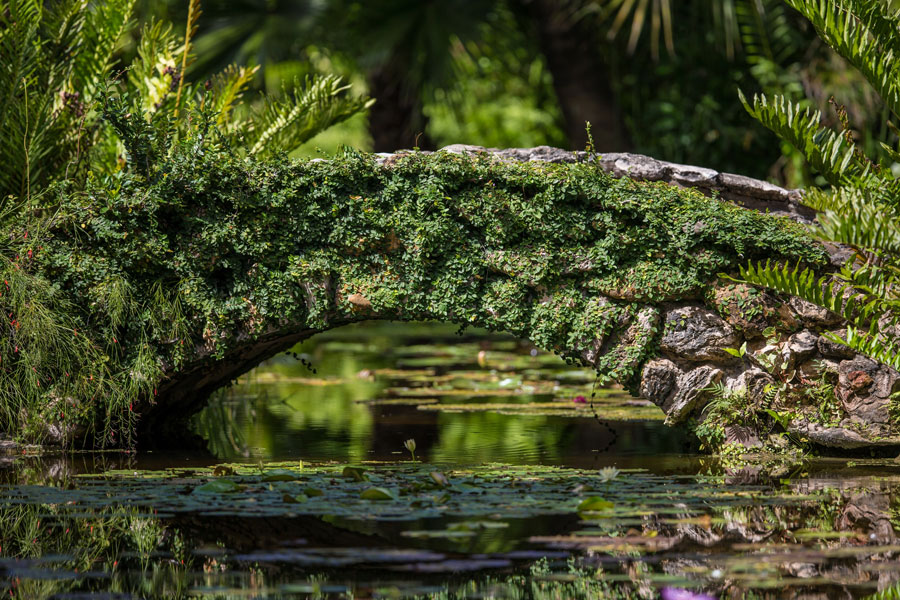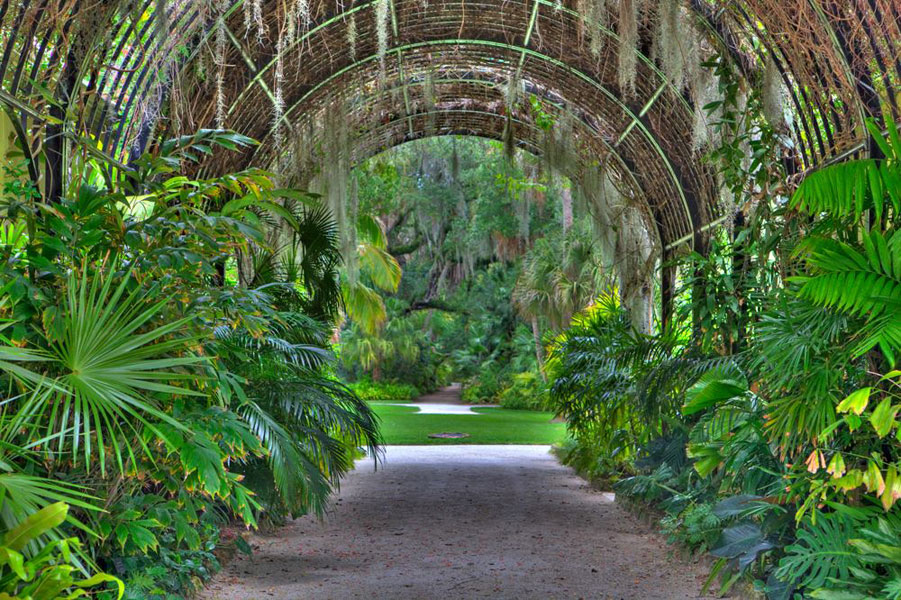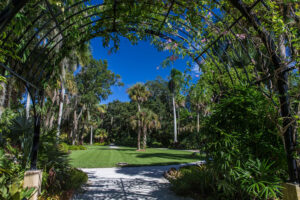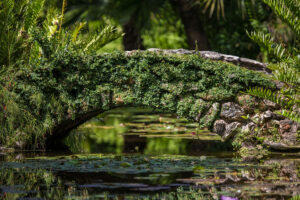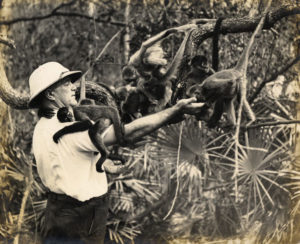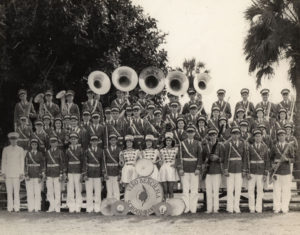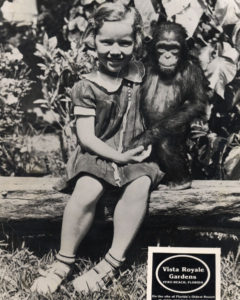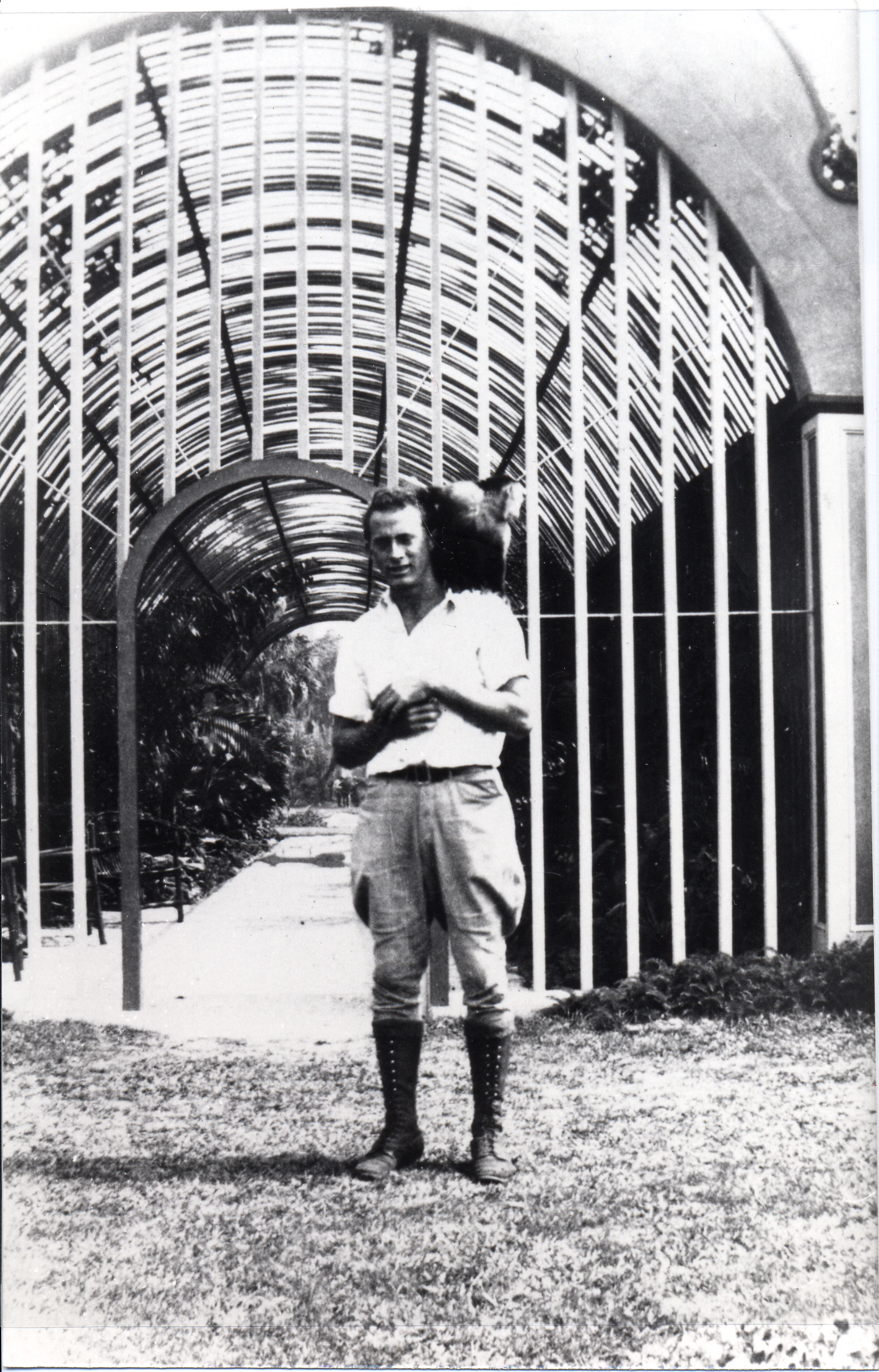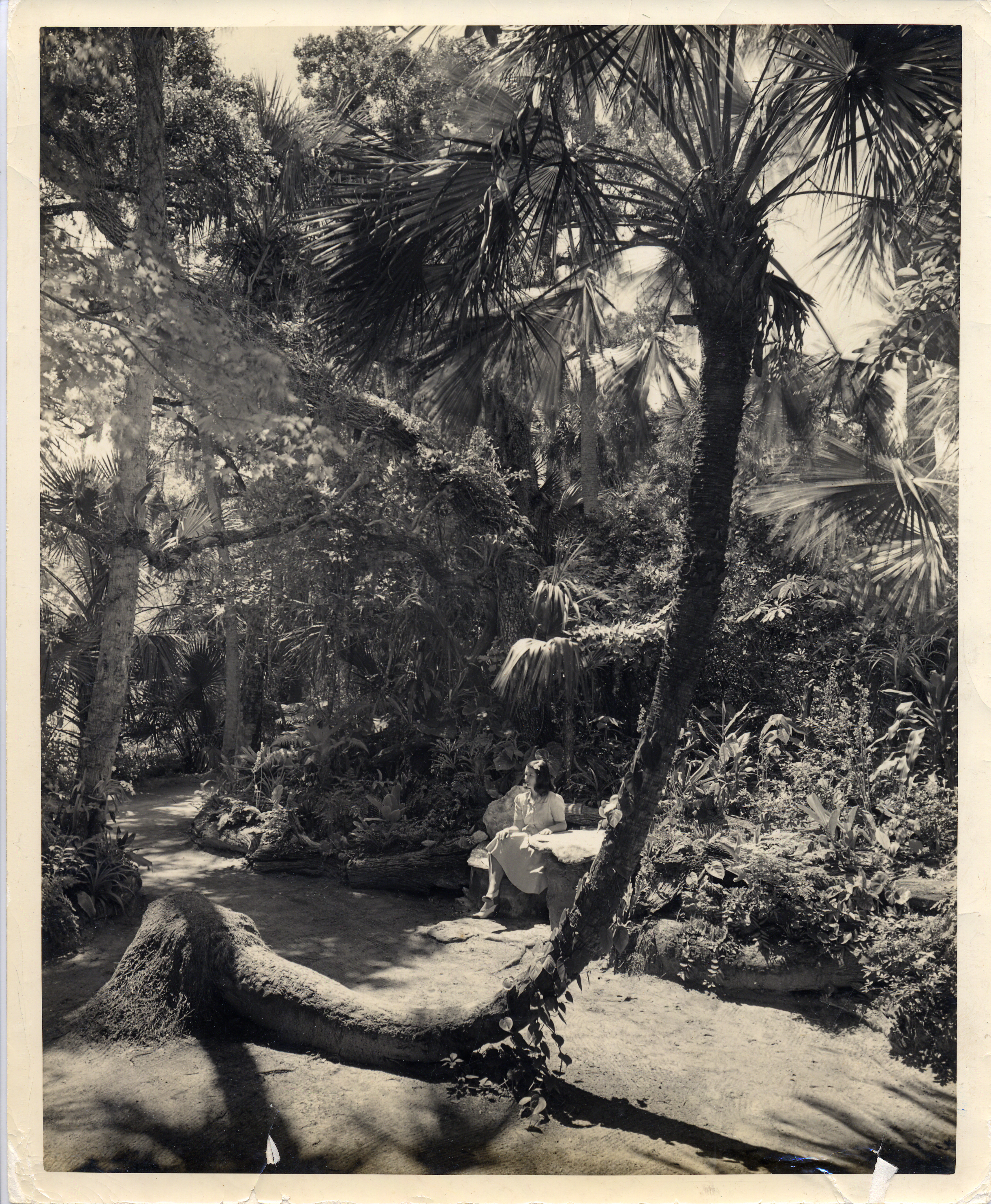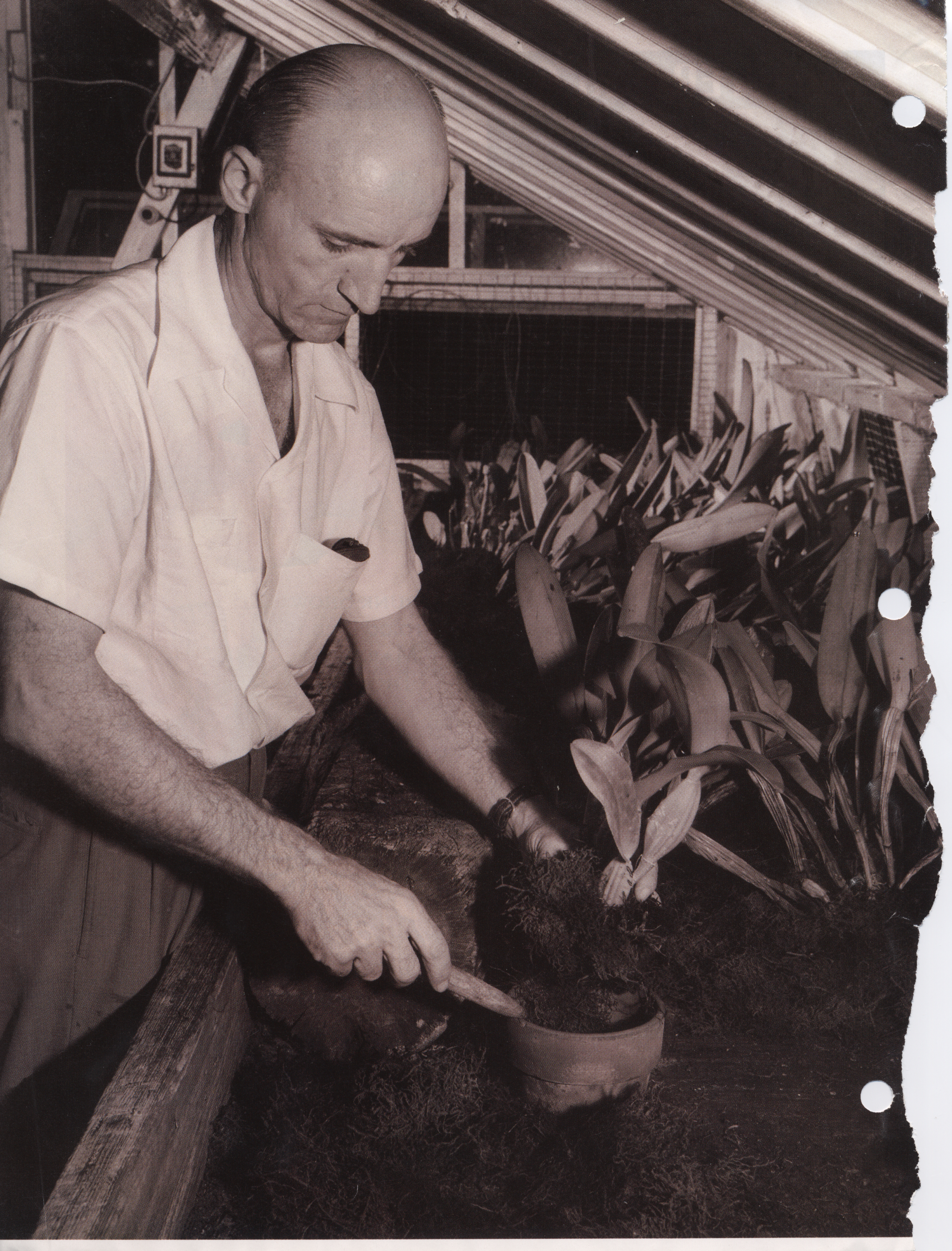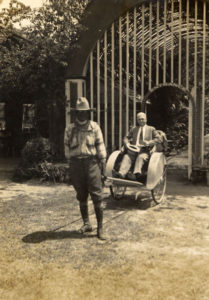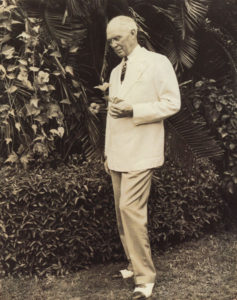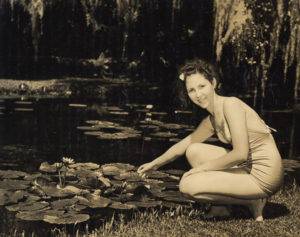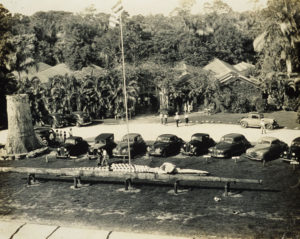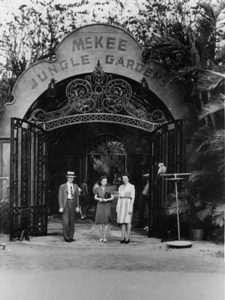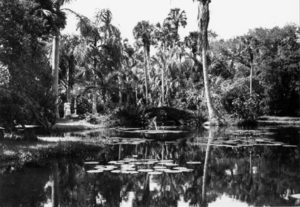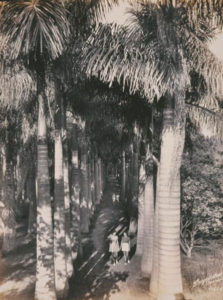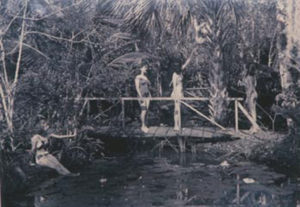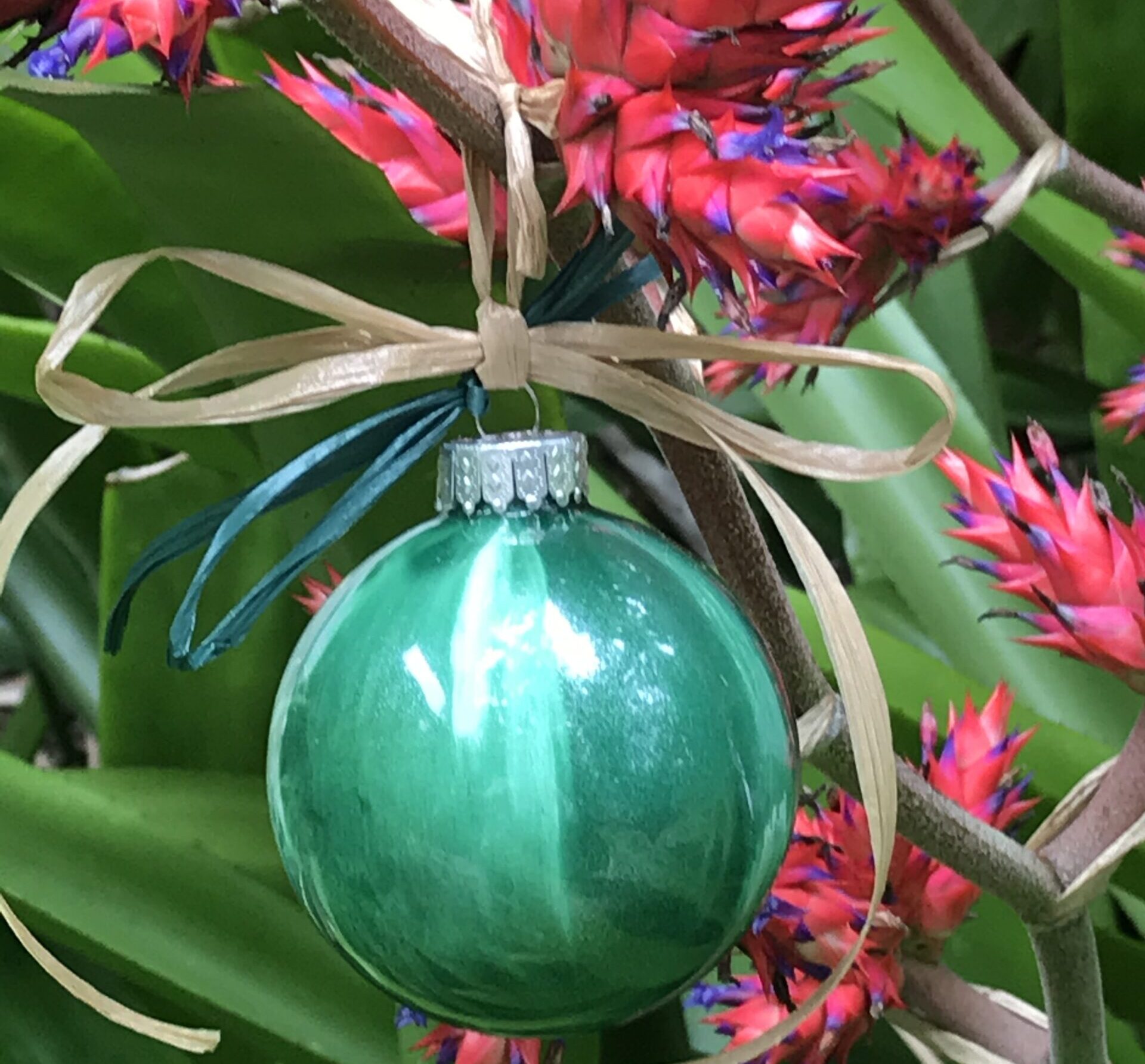McKee Botanical Garden strives to be at the forefront of environmental sustainability. McKee's role in horticultural stewardship, now and historically, is to ensure that the Garden's collections support plant biodiversity, that educational programming encourages environmental stewardship beyond our grounds, and that environmental sustainability is at the forefront of our work. We continue to improve our operations by remaining open to new ideas and practices as they are introduced. All horticultural requirements are strictly enforced by the Director of Horticulture which includes:
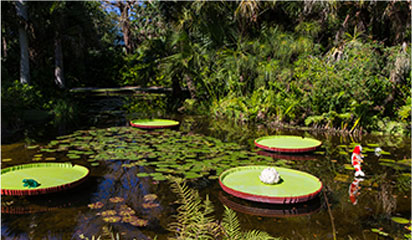
- Selection of sub-tropical and tropical foliage based on best fit for the native Florida hammock environment while keeping environmental concerns such as cold tolerance, invasive tendencies and appropriateness for site conditions in mind. McKee discourages annual planting.
- Reuse of all vegetative debris for mulch and other organic needs.

- Recycling of all non-vegetative materials through appropriate methods. The Garden maintains recycling receptacles throughout its public spaces. i.e. Shredding and recycling of office paper, bottles, newspapers and other recyclable materials.
- Employment of low-emissions technology and equipment whenever possible. This includes application of low-power use alternatives.
- The Garden uses rainwater to supplement the shallow well irrigation water. We apply strict irrigation management techniques, automatic rain shut off sensors and continuous monitoring of irrigation system are used to reduce excessive watering of the landscape. The waterway system is part of the irrigation system reservoir and utilizes submergent vegetation as a biological filter that captures nutrients in the water.
- Minimal use of chemicals such as herbicides, fertilizers and pesticides, applied on an as-needed basis only as approved by the Director of Horticulture.


